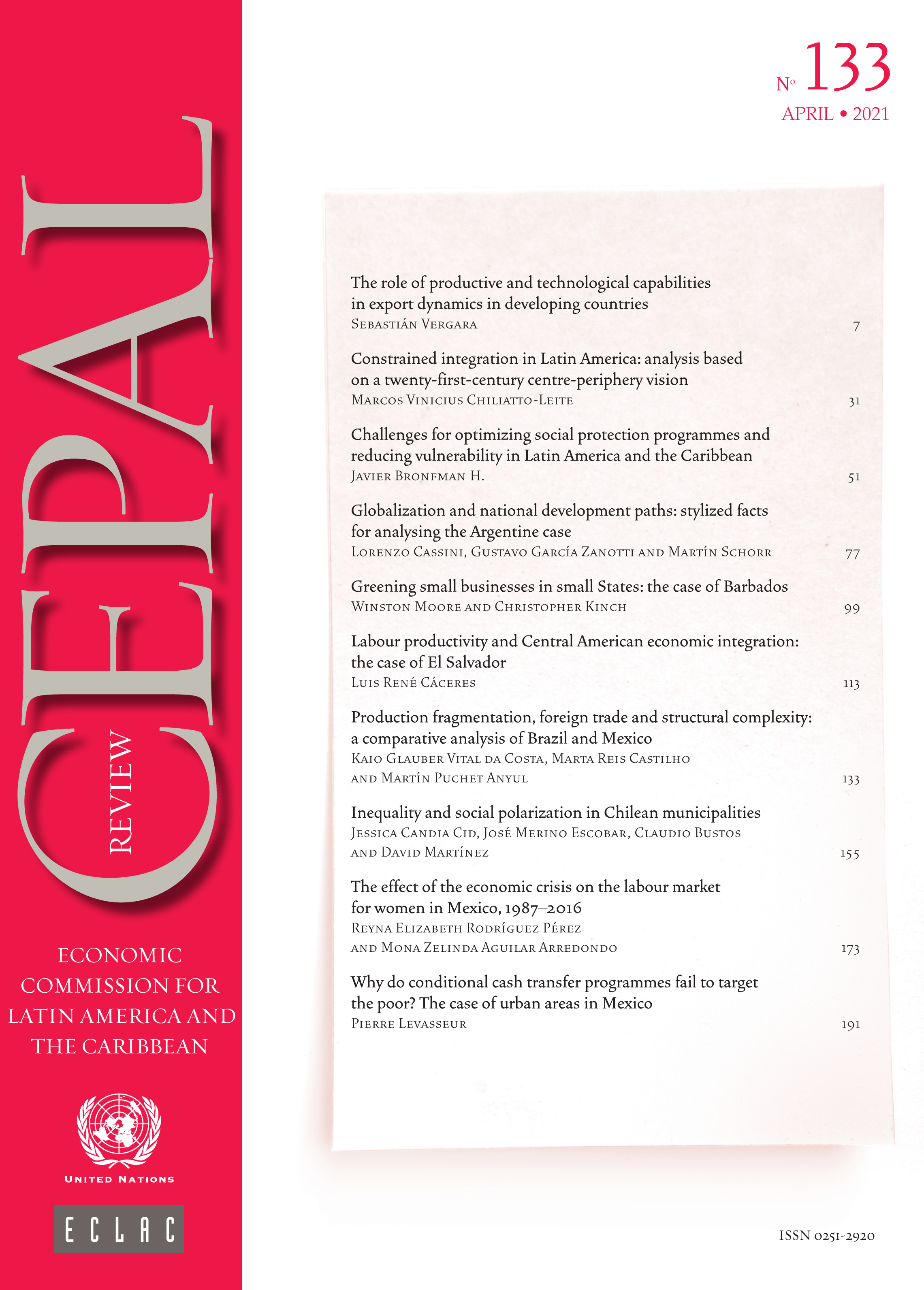-
Why do conditional cash transfer programmes fail to target the poor? The case of urban areas in Mexico
- Source: CEPAL Review, Volume 2021, Issue 133, Nov 2021, p. 191 - 206
- Spanish
-
- 02 Nov 2021
Abstract
Given the limited financing capacity of developing countries, conditional cash transfer (CCT) programmes are an affordable means of providing a social safety net to vulnerable households. However, compliance with conditionalities may limit participation and increase dropouts, particularly when compliance-related constraints are high and cash incentives are relatively low. This empirical analysis determines how cash transfer amounts affect the probability that participating households will remain in a programme or drop out, looking at the case of Mexico, a developing country that has gradually expanded its CCT programme from rural to urban areas. Using longitudinal household surveys, this study finds that the poorest households are most likely to drop out of the programme. Interestingly, the level of cash transfers increases this probability for the poorest participants compared to the richest ones. It is concluded that the programme does not successfully retain the poorest households in the programme, because the cash incentives are too low in urban settings.





